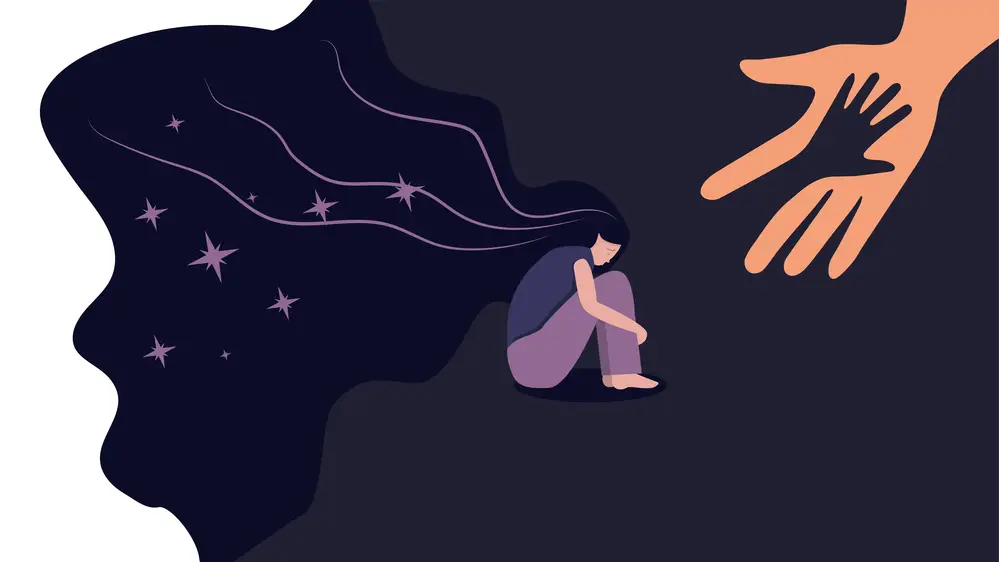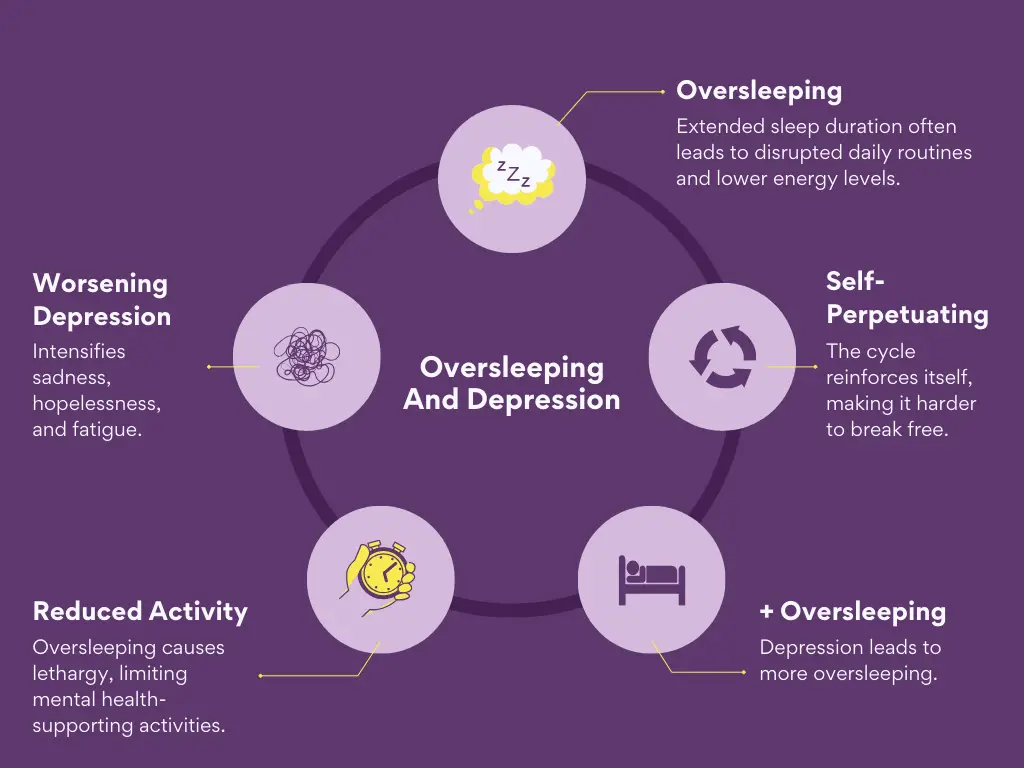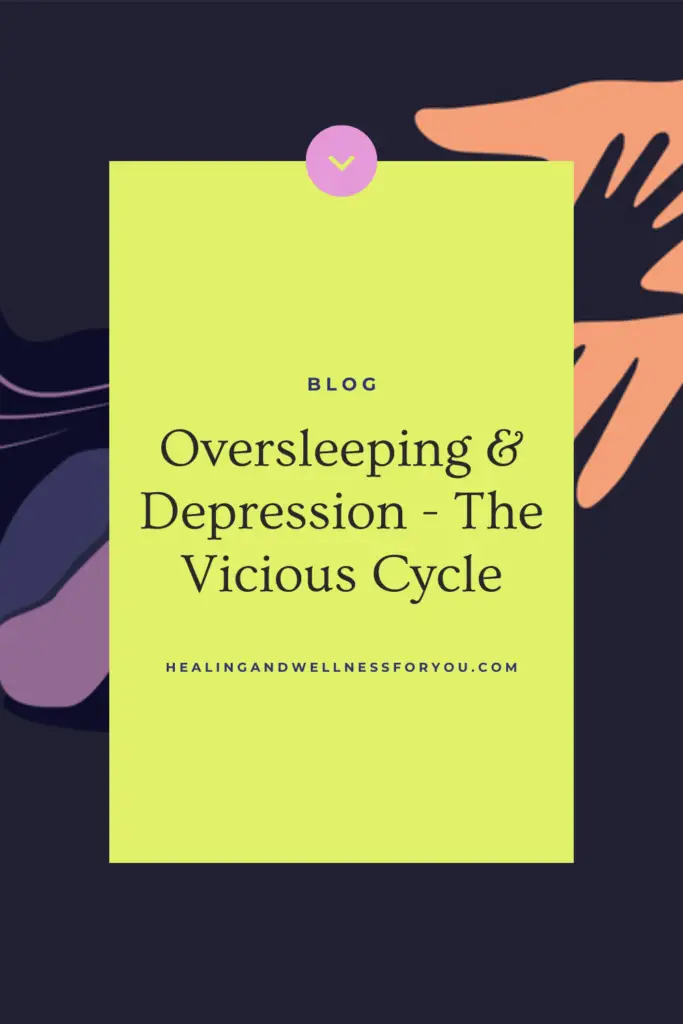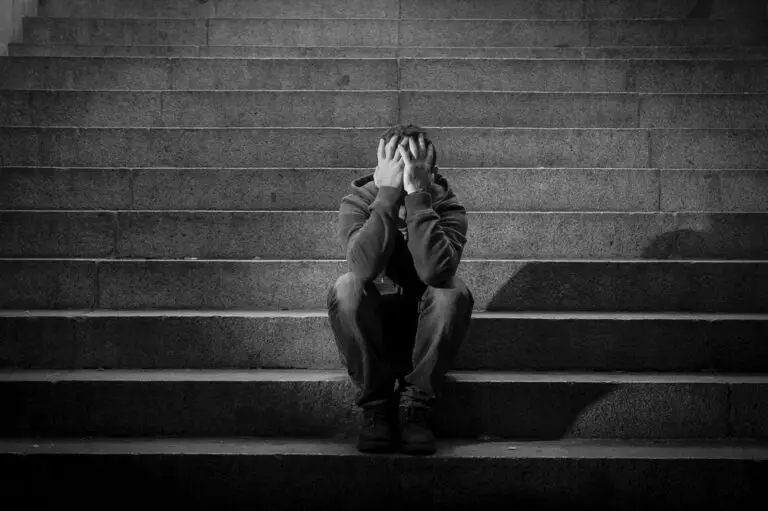Oversleeping and Depression: Causes, Effects, and Management Strategies
Oversleeping and Depression: Causes, Effects, and Management Strategies

Have you ever felt like staying in bed all day, unable to face the world? You’re not alone. Many people experience oversleeping and depression, two issues that often go hand in hand.
Sleeping too much can be a sign of depression, and it can also make depression worse. This creates a tricky cycle that’s hard to break. Our beds can feel like the safest place when we’re feeling low. But spending too much time there can hurt our mental health.
We all need sleep to function well and to heal. But there’s a big difference between getting enough rest and oversleeping. Too much sleep can leave us feeling groggy and unmotivated. For people grappling with depression, this can make it even harder to manage daily tasks and emotions – not to mention the psychological torture of the “shoulds” and “have tos.”
Causes of Oversleeping in Depression
Depression can lead to changes in sleep patterns. Several factors contribute to oversleeping in people struggling with depression.
Biological Factors Contributing to Oversleeping
Our brains produce chemicals that regulate sleep and mood. In depression, these chemicals can become imbalanced. This imbalance may cause increased sleepiness and a desire to sleep more.
The hormone melatonin plays a key role in sleep. People struggling with depression often have higher melatonin levels. This can make them feel sleepy during the day.
Changes in brain activity are also common in depression. These changes can disrupt regular sleep-wake cycles. This disruption may lead to sleeping too much.
Psychological Triggers for Oversleeping in Depressive States
Depression often comes with feelings of low energy and motivation. These feelings can make it hard to get out of bed. Staying in bed can be a way to escape negative thoughts and emotions – but ultimately, it hurts us more than helps us.
Some people use sleep as a coping mechanism. It can help them avoid dealing with problems or difficult situations.
Low self-esteem and feelings of worthlessness are common in depression. These feelings can make people think there’s no point in getting up.
Lifestyle and Environmental Factors Influencing Oversleeping Tendencies
Our daily habits can affect our sleep patterns. People struggling with depression may have irregular schedules. This can lead to sleeping at odd hours or for long periods.
Lack of exposure to sunlight can disrupt our body’s natural sleep-wake cycle. This is especially true in winter or for those who spend much time indoors.
Certain medications used to treat depression can cause drowsiness. This side effect may contribute to oversleeping.
Poor sleep hygiene, such as using electronic devices before bed, can also lead to oversleeping, making it harder to wake up and start the day.
Effects of Oversleeping on Mental Health
Oversleeping can significantly impact our mental well-being. It affects our mood, thinking skills, and overall quality of life. Let’s explore these effects in more detail.
Impact on Mood and Emotional Stability
Sleeping too much can mess with our emotions. We might feel more sad or irritable when we oversleep. It’s like our brain gets stuck in a fog.
Some people who oversleep may experience:
- Low energy
- Lack of motivation
- Feelings of guilt or worthlessness
These feelings can create a cycle. We sleep more because we feel bad, but then we feel worse because we slept too much. Breaking this pattern can be tricky.
Oversleeping is also linked to depression. While it’s often a symptom, it can make depression worse. This connection between oversleeping and depression is complex and can vary from person to person.
Relationship Between Oversleeping and Cognitive Functions
Too much sleep can slow down our thinking. We might have trouble focusing or remembering things. It’s like our brain is running on low battery.
Common cognitive issues from oversleeping include:
- Difficulty concentrating
- Slower reaction times
- Impaired decision-making skills
These problems can affect our work and daily lives. We might make more mistakes or take longer to finish tasks—avoidance often becomes the default.
Our brain needs the right amount of sleep to function well. Too little or too much can throw it off balance. Finding the sweet spot is key to keeping our minds sharp.
Consequences for Overall Mental Wellness and Quality of Life
Oversleeping can affect our whole lives. We might miss out on important things or feel disconnected from others, which can lead to more stress and anxiety.
Some ways oversleeping impacts our lives:
- Less time for hobbies and socializing
- Increased risk of physical health problems
- Potential job or school performance issues
When we sleep too much, we often feel tired during the day. This can make it hard to enjoy activities or be productive. Finding the right balance is tricky.
Getting back on track takes effort. We might need to adjust our sleep schedule or seek help from a doctor. Small changes can significantly affect how we feel and function daily.
Understanding Depression and its Manifestations
Depression affects many of us in different ways – it’s important to note that it can look different for everyone. It can change how we think, feel, and act. Let’s look at the types of depression, how oversleeping fits in, and why getting help is important.
Overview of Depression Types and Symptoms
Depression comes in several forms. Major depressive disorder is the most common type. It causes prolonged periods of low mood and loss of interest in activities. Other types include persistent depressive disorder, which lasts for years, and seasonal affective disorder, linked to changes in seasons.
Common symptoms of depression include, but are not limited to:
- Feeling sad or empty
- Sleeping too much or too little
- Changes in appetite
- Trouble focusing
- Feeling worthless or guilty
- Loss of energy
We might also notice physical symptoms like headaches or body aches. Depression can affect our relationships and work, too.
It’s important to mention that many individuals who are struggling with depression don’t display any of these symptoms – which can be tricky to detect and treat.
I have personally experienced bouts of depression without realizing it until I discussed my feelings further with my therapist, family, and friends. Don’t be afraid to reach out if you aren’t sure!
How Oversleeping Fits into the Spectrum of Depressive Disorders
Oversleeping is a key sign of some types of depression. It’s often seen in atypical depression, which can be tricky to spot. People with this type might sleep 10 or more hours daily and still feel tired.
Excessive sleep can be both a symptom and a contributing factor to depression. It can make us feel more sluggish and worsen our mood. This creates a cycle that’s hard to break – which is super frustrating for those struggling with depression.
Some reasons we might oversleep when depressed:
- Our body feels heavy and tired
- We lack the motivation to get up
- Sleep feels like an escape from negative thoughts
Importance of Professional Diagnosis and Treatment
Getting help from a doctor or therapist is imperative. They can tell the difference between typical sadness and clinical depression. This is important because depression needs proper treatment.
Treatment might include:
- Therapy (like EMDR – Eye Movement Desensitization and Reprocessing)
- Medication (such as antidepressants or holistic meds)
- Lifestyle changes
Professional help can also address sleep issues. This is key because better sleep can improve mood and overall health.
We shouldn’t try to diagnose or treat depression on our own. A professional can create a plan that fits our specific needs and symptoms.
The Vicious Cycle: Oversleeping and Depression

Depression and oversleeping often feed into each other, creating a complex pattern to break. Let’s explore how these two issues interact and what can be done to interrupt this cycle.
Reciprocal Relationship Between Oversleeping and Worsening Depression
Depression can make us feel tired all the time, leading to excessive sleep. We might sleep more than 9 hours at night or take long naps during the day.
This extra sleep doesn’t make us feel better. Instead, it can make depression worse. When we oversleep, we might:
- Miss out on daily activities
- Feel groggy and unfocused
- Have less time for exercise or socializing
These effects can deepen our depression. As we feel worse, we may want to sleep even more. This creates a vicious cycle that’s hard to escape.
Breaking the Cycle Through Targeted Interventions
We can take steps to disrupt this cycle. Here are some helpful strategies:
- Stick to a sleep schedule
- Get morning sunlight
- Exercise regularly
- Practice good sleep hygiene
It’s also important to seek treatment for depression. This might include therapy, medication, or both. A doctor or therapist can help create a plan to improve both mood and sleep habits.
Small changes can make a big difference. Even getting up 15 minutes earlier each day can help. The key is to be patient and consistent as we work to balance our sleep and mood. Small wins are still wins!
Management Strategies for Oversleeping in Depression
Dealing with oversleeping when struggling with depression can be challenging. I’ve put together some key strategies to help regulate sleep and improve mental health. These approaches focus on changing behaviors, adjusting thought patterns, and changing healthy lifestyles.
Behavioral Techniques to Regulate Sleep Patterns
It is important to set a consistent sleep schedule. I recommend going to bed and waking up simultaneously every day, even on weekends, to help reset your body’s internal clock.
Try the gradual wake-up method. Start by setting your alarm 15 minutes earlier each day until you reach your target wake time. This eases the transition to earlier mornings.
Use light to your advantage. When you wake up, open curtains or use a light therapy lamp. Bright light signals to your brain that it’s time to be alert.
Avoid naps during the day. If you must nap, keep it short – no more than 20-30 minutes. Longer naps can disrupt nighttime sleep patterns.
Cognitive-Behavioral Strategies for Addressing Oversleeping Habits
Challenge negative thoughts about sleep. When you think, “I can’t get out of bed,” try reframing it as “I can take small steps to start my day.”
Set small, achievable morning goals. This could be as simple as sitting in bed or walking to the bathroom. Celebrate these wins to build momentum!
Use the 5-second rule. When your alarm goes off, count backward from 5 and get up. This technique can help override the urge to stay in bed.
Practice mindfulness when waking up. Take a few deep breaths, notice your surroundings, and, most importantly, take your time. This can make for a smoother transition into your day.
Incorporating Healthy Lifestyle Changes for Better Sleep and Mental Health
Regular exercise can improve sleep quality, mood, and overall health. Aim for 30 minutes of moderate activity most days, but avoid intense workouts close to bedtime.
Regular exercise can improve sleep quality, mood, and overall health. Aim for 30 minutes of moderate activity most days, but avoid intense workouts close to bedtime. If you are anything like me and despise repetitive workouts, get creative. You can go on fast-paced walks, bike rides, swim, dance, etc.
Watch what you eat and drink. Cut back on caffeine, especially in the afternoon and evening. Avoid heavy meals before bed, which can disrupt sleep.
Create a relaxing bedtime routine. This might include reading, gentle stretching, or meditation. A consistent routine signals your body that it’s time to wind down.
Make your bedroom a sleep-friendly zone by keeping it dark, quiet, and calm. Use comfortable bedding and consider blackout curtains or a white noise machine if needed. I personally love to put on rain sounds for sleep!
Why Seek Professional Help?
Getting expert support can make a big difference when dealing with oversleeping and depression. Professionals can help offer personalized strategies and treatments to address these interconnected issues effectively.
Role of Mental Health Professionals in Managing Oversleeping and Depression
Mental health pros play a key part in tackling oversleeping and depression.
These experts use special tools to determine the cause of problems. They examine sleep patterns, mood changes, and daily habits.
They create treatment plans that fit each person’s needs. This might include:
- Sleep hygiene tips
- Mood tracking
- Lifestyle changes
Mental health pros also help people build coping skills. These skills are vital for breaking the cycle of depression and oversleeping.
Treatment Options, Including Therapy and Medication
There are several ways to treat oversleeping and depression. Therapy is often a go-to choice. Eye Movement Desensitization and Reprocessing (EMDR) can help address underlying trauma or negative beliefs that contribute to oversleeping and depression, promoting healthier sleep patterns and improved mood by reprocessing distressing memories and promoting emotional stability.
Medications might also be part of the plan. Antidepressants can boost mood and energy levels, and some medications can help regulate sleep patterns.
Other options I’ve found helpful include:
- Light therapy
- Exercise programs
- Mindfulness techniques
- Holistic medicine such as acupuncture or homeopathy
It’s important to note that treatment should be tailored to each person. What works for one might not work for another.
Importance of Individualized Care Plans
Personalized care plans are essential when dealing with oversleeping and depression. These plans consider a person’s unique symptoms, lifestyle, and goals.
Individualized care leads to better outcomes. It might include a mix of:
- Therapy sessions
- Medication adjustments
- Sleep schedule changes
Regular check-ins are essential for tracking progress and making necessary adjustments. This ensures that the plan remains effective and that the individual dealing with depression remains accountable.
Seeking professional help early can prevent issues from getting worse. It’s a proactive step towards better mental health and sleep habits.
Lifestyle Tips for Managing Oversleeping and Depression
Minor changes to your daily habits can significantly impact your sleep and mood. We’ll explore ways to improve sleep routines and develop mental wellness practices.
Daily Routines and Habits That Promote Better Sleep Hygiene
Sticking to a regular sleep schedule is key. To help set your body’s internal clock, I suggest going to bed and waking up simultaneously every day, even on weekends.
Create a relaxing bedtime routine:
- Take a warm bath
- Read a book
- Listen to soft music
- Try gentle stretches
Avoid screens before bed. The blue light can mess with your sleep hormones. Instead, dim the lights and partake in calm activities.
- Make your bedroom sleep-friendly
- Keep it cool (60-67°F)
- Use blackout curtains
- Get a comfortable mattress and pillow
Activities and Practices to Support Mental Wellness Alongside Treatment
Exercise is a powerful mood-booster. I recommend aiming for 30 minutes of movement most days. This could be a brisk walk, yoga, or dancing to your favorite songs.
Spend time in nature. Even a short walk in a park can lift your spirits. Sunlight helps regulate your sleep-wake cycle, too.
Connect with others. Call a friend, join a club, or volunteer. Social support is crucial for mental health. Connection heals!
Try mindfulness or meditation. These practices can ease stress and improve sleep. Start with just 5 minutes a day and build up.
Set small, achievable goals each day. This gives you a sense of purpose and accomplishment. It could be as simple as making your bed or trying a new recipe.
Final Thoughts
Oversleeping and depression are deeply interconnected, with each potentially exacerbating the other. Understanding the underlying causes, such as disrupted sleep cycles, emotional distress, or physical health conditions, is essential for effective management. We can regain control over our sleep patterns and overall well-being by incorporating therapy, lifestyle changes, and medical interventions. Addressing oversleeping as part of a holistic approach to managing depression can pave the way toward improved mental health and a more balanced life! We all deserve to heal!

Frequently asked Questions
Depression and sleep have a complex relationship. Let’s explore common questions about how they interact and ways to improve mood and sleep quality.
Can excessive sleep contribute to depressive symptoms?
Yes, oversleeping and depression can be linked. It’s not just a symptom – sleeping too much may make depression worse.
When we spend too much time in bed, we miss out on activities and social connections that can boost our mood. This can create a hard-to-break cycle.
What impact does depression have on sleep patterns?
Depression can disrupt sleep in different ways. Some people have trouble falling asleep or wake up too early. Others may sleep excessively. In contrast, some may struggle to sleep at all.
These changes in sleep patterns are common signs of depression. They can make it harder to function during the day and may worsen mood problems.
Are there mental health risks associated with too much sleep?
Sleeping too much can have adverse effects on mental health. It may increase feelings of lethargy and make it harder to engage in daily activities.
Over time, oversleeping can worsen depression and make it more challenging to break out of negative thought patterns. It can also lead to social isolation, which can further impact mood.
How can I tell if my sleeping habits are related to depression?
If you’re sleeping much more than usual or find it hard to get out of bed, it could be a sign of depression. Other clues include constantly feeling tired, even after sleeping a lot.
Changes in appetite, loss of interest in activities you used to enjoy, and persistent sad or empty feelings are also signs to watch for.
If unsure, it is always best to consult a licensed therapist!
What strategies can help manage sleep disturbances in depression?
Setting a regular sleep schedule can help. Try to go to bed and wake up simultaneously each day, even on weekends.
Sunlight and exercise during the day can also improve sleep and mood. Limit naps and avoid caffeine late in the day.
If you have capacity, try a mindfulness exercise before bed! Mindfulness calms the brain.
Can improving sleep quality alleviate symptoms of depression?
Remember, we heal when we sleep!
Better sleep can help with depression symptoms. Focusing on sleep hygiene – like having a relaxing bedtime routine and creating a comfortable sleep environment – can make a big difference.
If sleep problems persist, talking to a doctor or therapist can help. They may suggest treatments that target both sleep issues and depression.
About the Author
Taylor O’Horo, Psychology Major.

Hello friends! I’m Taylor O’Horo, marketing coordinator and biofeedback technician. I’m a mom to three kiddos, wife of a first responder, and a veteran spouse. I earned my bachelor’s degree in psychology from Arizona State University and plan to pursue a master’s in counseling. Everyone has a story, and mine is no different. Overcoming the adversities I’ve faced has taught me about resilience and how to support others. I believe that all humans have the capacity to heal! You are worth it!






